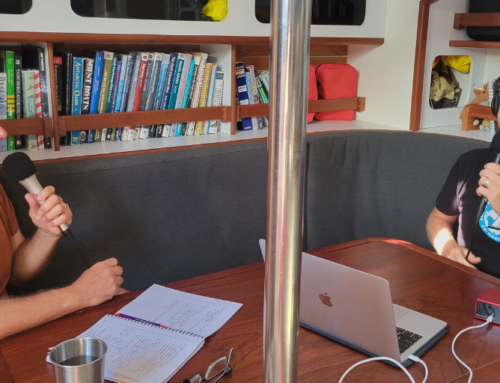Episode: Steven Horwitz is Distinguished Professor of Free Enterprise and Director of the Institute for the Study of Political Economy in the Department of Economics in the Miller College of Business at Ball State University in Muncie, IN. He is also an Affiliated Senior Scholar at the Mercatus Center in Arlington, VA, a Senior Fellow at the Fraser Institute of Canada, and the economics editor at the Cato Institute’s libertarianism.org. He is the author of four books, including most recently Austrian Economics: An Introduction. He has written extensively on Hayek and Austrian economics, monetary theory and history, and American economic history, and is a frequent guest on radio and cable TV programs. He is also the 2020 recipient of the Julian L. Simon Memorial Award from the Competitive Enterprise Institute.
Jeremy Keil, CFP®, CFA, CIMA®, is a retirement-focused financial planner with Keil Financial Partners and the host of the Retirement Revealed blog and podcast. Jeremy was also the Wisconsin Libertarian Party executive director in 2003 and served on the Libertarian National Committee from 2004 to 2008.
Insight: Many cryptocurrency enthusiasts believe Bitcoin is a solution to the ongoing economic fallout from the Great Recession, wealth inequality, high debt, and massive money printing. Bitcoin and related digital assets can be particularly appealing to folks who view our financial system through the lens of Austrian Economics or libertarian politics, which, broadly, emphasize the freedom of the individual. But as this discussion shows, the intersection between Bitcoin, economic philosophy, and politics is still very much a work in progress. There’s promise, but there are also some potential obstacles to what Bitcoin can and can’t deliver within our society’s existing frameworks.
–
3 Quotes:
1. The Austrian School’s emphasis has always been on the importance of entrepreneurship, of markets, of competition as being the processes by which we improve human beings lives, by which we progress, by which we engage in peaceful interaction with each other, and by which we produce prosperity. And I think we’re entering a time right now where those ideas are under severe threat from the macro economic side, in terms of the enormous amount of spending we’re engaged in, the kinds of restrictions that came with the pandemic that thankfully seem to be easing up significantly. Whether they’ll all ever go away is an interesting question as well. – Steve Horwitz
2. It’s a blessing and a curse that libertarianism is both a philosophy and a political movement. In a way you need to separate that there are libertarian philosophers who have a mindset that all people have the right to live their life the way they choose and do not have the right to prevent others from living their life. Meanwhile, libertarian politics is creating policies that acknowledge people’s rights to live the way they want, which these days is more, how do we get rid of the policies that prevent your right to live the way that you want. – Jeremy Keil
3. I don’t think Bitcoin solves a problem. What it does is it offers an alternative to the standard money and banking system for a limited number of people who are doing a limited number of things. So that’s why I’m hesitant to call it a money. Or at least it’s not a good money. It’s not a currency. It’s a digital asset that can be used as a medium of exchange and is used best in those situations where you want pseudonymity or anonymity, where you want privacy, and over great distances because of course it’s digital. So it has real value in that sense, doing money-like things. And I think one of the great strategies libertarians need to engage in and support is building alternative institutions to the state and to the things that the state tries to protect. – Steve Horwitz




